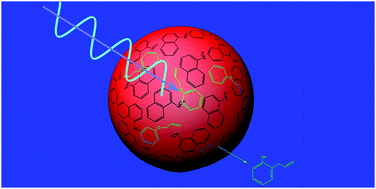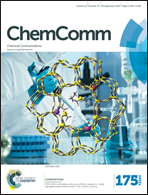The “chaperone” effect in microwave-driven reactions†
Abstract
Chemically reactive molecules that are poor absorbers of microwave radiation can be selectively heated by the microwave and can experience chemical-rate enhancement if they are associated (agglomerated) in solution with non-reactive polar molecules that are strong microwave absorbers.


 Please wait while we load your content...
Please wait while we load your content...